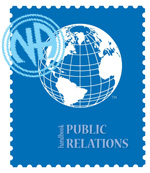An article written about Narcotics Anonymous in Honolulu, Hawaii, USA, with the cooperation of the O’ahu Public Information Committee.
Anonymity of Drug Program Helps ‘Responsible Addict’ Clean Up
By Lee Cataluna
Advertiser Columnist
Honolulu Advertiser Tuesday, May 25, 2003
Bea shatters the stereotype of a longtime drug addict; through 25 years of using, she managed to keep a lot of her life together.
“I never lost a job. Never stole to support my habit. Never was arrested,” she says. “I never suffered the consequences that those I used with suffered.”
But there were consequences, and her responsible life was eroding with time.
“I would go home Friday and not go out of the house until Monday morning,” she says. “I had my drugs delivered to me so I didn’t have to go out on the streets to buy.
“I had a rule that I never drove loaded, but even that started to deteriorate.”
Bea tried to stop using for 10 years. She would “bootstrap” by herself for as long as she could hold out before using again. She would go to pay phones to call about drug treatment and tried to see how she could do it without using her medical insurance. She didn’t want a paper trail. She didn’t want anybody to know.
Bea started going to Narcotics Anonymous meetings, but it sure wasn’t a quick fix.
“I’m one of those people who went in and out of meetings,” she says. “I know all the ways NA doesn’t work. It doesn’t work to come to meetings late. It doesn’t work to leave early. It doesn’t work to come loaded. It doesn’t work to use in between meetings. I went to meetings for years and no one even knew my name.”
The turning point was what she calls a “new low” in her life.
“I would spend hours and hours at the computer at work recomposing the same paragraph. I would lock my office door and press my ear to the wall listening to my co-workers, so sure that they were gossiping about me. Hiding out on weekends. Stuff like not brushing your teeth unless you had to go out into a public place. Forgetting and wearing slippers to work.”
She got clean and has been clean for more than four years, but says it was just in the past year that the obsession to use drugs left her.
“I didn’t lose that desire for three years. The miracle was even though I wanted to use, I could choose to not use.”
That miracle Bea attributes to the tools she learned in Narcotics Anonymous, tools that allowed her to take one day at a time. The program welcomes anyone who wants to stop using drugs.
“One thing that made a difference this time was I was willing to admit that I never learned how to live life and be with other people. It wasn’t enough to be employed, responsible, functional.”
For Bea, the anonymity of the program was key. “There’s a social stigma to drug addiction,” she says. “It’s subtle, it’s unspoken, but it’s there and it’s louder than if they had put it into words.”
But it’s not only the protection of being anonymous that appealed to her. It’s that the program is not attached to any one person or personality. It’s for anyone who wants to stop using.
“Anonymity as a spiritual principle,” she says. “It’s not so much you don’t know who I am. It’s not from me. It’s not my program.
“One of the most profound things happened during my recovery. My younger brother, who followed in my footsteps to addiction, he got clean. We spent Christmas together with the family.
It was the first time both of us were fully present since we were kids. That was December. In February, my brother left the clean and sober house where he was staying.”
Soon after, her parents got the call. Her brother had died from a drug overdose.
“I got to stay clean and to be there for my parents. I got to know I wasn’t responsible for someone else’s recovery, and I knew how lucky I was to be alive.”
Bea is still paying off debts she racked up in her years of using. “I never borrowed money from drug dealers,” she explains. “I was employed. I had credit. I borrowed off my 401(k).”
Bea goes to meetings almost every day and started a new meeting downtown four days a week. She went from being a “responsible addict” to a responsible
recovering addict.
© COPYRIGHT 2003 The Honolulu Advertiser, a division of Gannett Co. Inc. All materials contained on this site are protected by United States copyright law and may not be reproduced, distributed, transmitted, displayed, published or broadcast without the prior written permission of The Honolulu Advertiser. You may not alter or remove any trademark, copyright or other notice from copies of the content. http://www.honoluluadvertiser.com/
